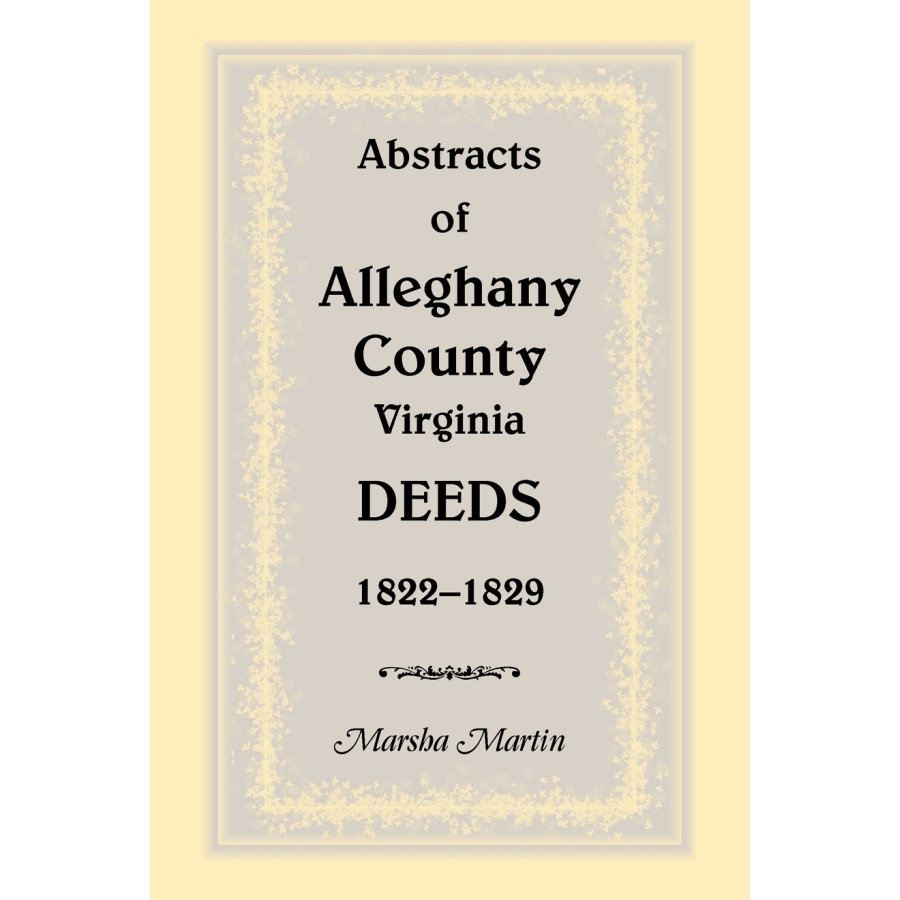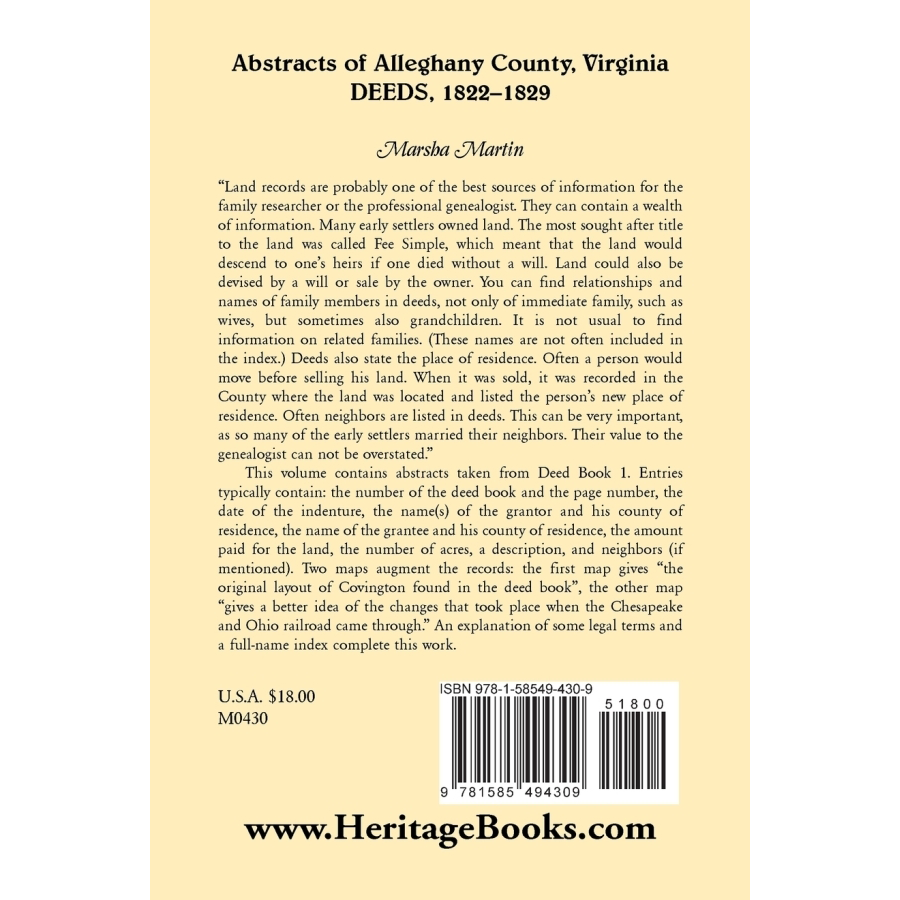Abstracts of Alleghany County, Virginia Deeds, 1822-1829
Couldn't load pickup availability
"Land records are probably one of the best sources of information for the family researcher or the professional genealogist. They can contain a wealth of information. Many early settlers owned land. The most sought after title to the land was called Fee Simple, which meant that the land would descend to one's heirs if one died without a will. Land could also be devised by a will or sale by the owner. You can find relationships and names of family members in deeds, not only of immediate family, such as wives, but sometimes also grandchildren. It is not usual to find information on related families. (These names are not often included in the index.) Deeds also state the place of residence. Often a person would move before selling his land. When it was sold, it was recorded in the County where the land was located and listed the person's new place of residence. Often neighbors are listed in deeds. This can be very important, as so many of the early settlers married their neighbors. Their value to the genealogist can not be overstated."
This volume contains abstracts taken from Deed Book 1. Entries typically contain: the number of the deed book and the page number, the date of the indenture, the name(s) of the grantor and his county of residence, the name of the grantee and his county of residence, the amount paid for the land, the number of acres, a description, and neighbors (if mentioned). Two maps augment the records: the first map gives "the original layout of Covington found in the deed book", the other map "gives a better idea of the changes that took place when the Chesapeake and Ohio railroad came through." An explanation of some legal terms and a full-name index complete this work.
Marsha Martin
(1997), 2013, 5.5" x 8.5", paper, index, 110 pp.
ISBN: 9781585494309
101-M0430

